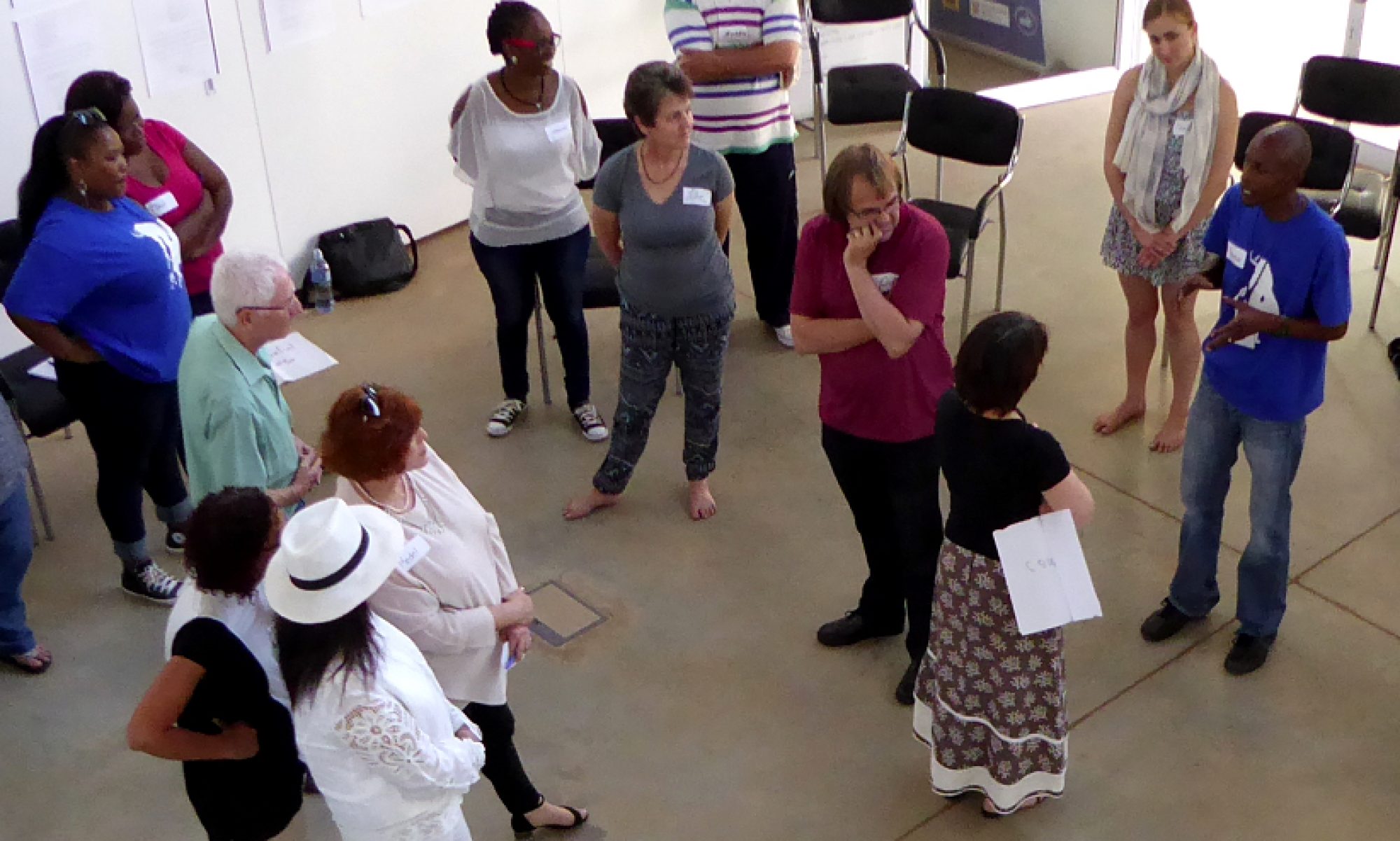Story was the focus of this week’s class. We started the class with an exercise from Imago Relationship Therapy. In this exercise each participant gets the opportunity to say in a few sentences what they need to say to be fully present. One of the others must then mirror that persons exact words back to them. The exercise is not so much about saying what you need to say to be present, but being listened to fully without judgement. When we listen to people like this we help them to become fully present. In essence what we are doing is accepting them and showing them that they are welcome and worth being listened to.
The next exercise was a game call Todododo in which we had to make word associations keeping a rhythm. This illustrates how much easier it is to come up with ideas if you stop trying so hard. This is why in Improv we say “be average”. If you stop trying to be perfect and get everything right , it helps to lower anxiety and your brain can relax and function better so that your creativity can surface. After that we played another word association game in which we just made associations around the circle. This game illustrated how our minds automatically make links between random words. In the next game everyone paired up with one other person. The one had to come up with 4 unrelated sentences that the other had to connect together to create a story. Relating random events together is what makes a story. At first it sounds like a difficult task but as I mentioned earlier the brain does it automatically. Our brains are wired that way. Relating events together and making up stories is how we make sense of the world.
Then we played Automatic Story. In this game one player has to ask yes/no questions about the storyline of an unknown story that the other player has in mind. What the questioning player doesn’t know is that the person answering the questions is only saying yes to questions starting with a vowel and no to questions starting with a consonant. The person asking the questions is therefore making up the story without knowing it. This game illustrates how easy it is to make up our own stories. Isn’t it interesting how in life we also often think that someone else is in control of our tale, while we are actually the authors of our own life stories?
The next game that we played was What happens next? In this game one player stands in the middle of the circle and acts out a story that the rest of the group make up one sentence at a time. After each sentence the player asks “What happens next?” To improvise a good story in a group there are 4 important guidelines-
• Free association: Free associated ideas create the material from which a story can be constructed.
• Reincorporation: Reincorporation is the recycling or re-using of ideas or situations from earlier in the story. By reincorporating ideas and situations you make sense of the random ideas generated by free association.
• Platform: The who, what and where of a scene. Success of a scene often depends on a solid and clear platform.
• Breaking routine: A good story that will engage an audience is a series of routines that are broken creating new routines.
I believe that if we want our lives to be good stories we must become aware of routines that are limiting us and break them and create new routines. And when the new routine starts to limit us we must break it again. Routines can be anything from a mindset, to a hab it to a physical space. The harder it is to break the routine, the higher the risk and the better the potential for a really good story.
As a footnote: Sandra Lee Schubert co – facilitated a writing program for 10 years where participants would weekly share immensely personal pieces of some aspects of their lives. In a conversation, her co-facilitators asked why they had to be so personal. She asked, “ Why not? “There is a deep, deep desire to be heard. People want to stake their claim in the landscape of story. Intimacies are shared because we want to take the power back. Why should someone else define your story?


I remember this class very well from the last Level 1 workshop…pity I missed it. I’ve just once more realized the beauty underneath a simple
question we ask people every day. ” How are you?” What if we offered more than the standard ” Good thanks and you?”
Voel vir my asof ons alte goed geleer het om nie ons storie te vertel nie…maar gelukkig speel, ag bedoel,leer mens dit maklik weer af. Dankie B.